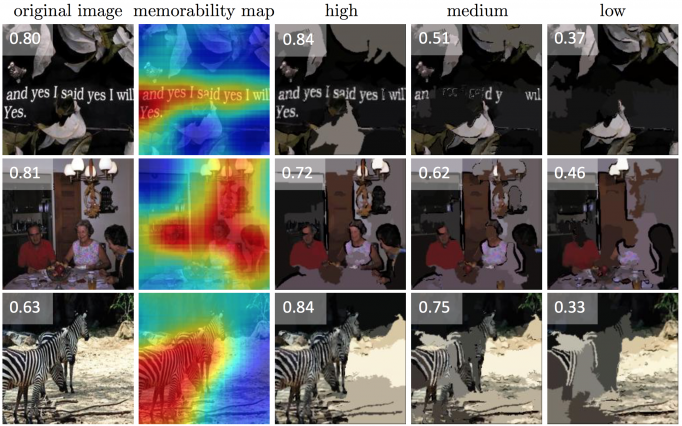The Geniuses at MIT Developed an Algorithm That Guarantees More Memorable Photos
Researchers at the Massachusetts Institute of Technology have come up with a way to get your artsy Instagram shots even more likes.
A team at the school's Computer Science and Artificial Intelligence Laboratory have developed an algorithm that can accurately anticipate how memorable (or not) an image will be. According to the lab, the software is almost on par with human judgment — meaning that the computer can determine how memorable your photo will be almost as well as you can.
The algorithm itself is currently online, and you can upload your own photo. The program will spit out the image and a heat map, which shows the most memorable spots in the picture.

Source: MIT
Why memorability matters: "Understanding memorability can help us make systems to capture the most important information, or, conversely, to store information that humans will most likely forget," said Aditya Khosla, the lead researcher on a similar paper, according to MIT News. "It's like having an instant focus group that tells you how likely it is that someone will remember a visual message."
The algorithm incorporates what's known as "deep learning," a kind of artificial intelligence that enables computers to actually find and locate patterns of data by themselves.
The lab explains how it works:
Neural networks work to correlate data without any human guidance on what the underlying causes or correlations might be. They are organized in layers of processing units that each perform random computations on the data in succession. As the network receives more data, it readjusts to produce more accurate predictions.
The team fed its algorithm tens of thousands of images from several different datasets, including LaMem and the scene-oriented SUN and Places (all of which were developed at CSAIL). The images had each received a "memorability score" based on the ability of human subjects to remember them in online experiments.
The team then pitted its algorithm against human subjects by having the model predicting how memorable a group of people would find a new never-before-seen image. It performed 30 percent better than existing algorithms and was within a few percentage points of the average human performance.
The researchers noted that the algorithm could apply to many different areas, including "improving the content of ads and social media posts, developing more effective teaching resources, [and] creating your own personal 'health-assistant' device to help you remember things."


